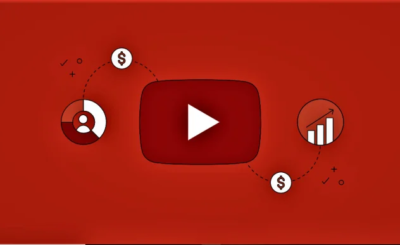Your business is booming. You have just received a large order and need to purchase additional inventory. Or maybe you want to hire someone new or invest more in digital marketing.
“If you don’t invest in the business, you’re going to miss the opportunity to grow the business at a critical time,” says Jasmin Ganie-Hobbs, Director, Major Accounts at BDC. “A loan will allow you to take advantage of opportunities while protecting your cash flow.”
But how do you choose between a personal loan and a business loan? Jasmin Ganie-Hobbs, who has nearly 15 years of experience providing loans to business owners, outlines the pros and cons of each for you to make your choice easier.
Table of Contents
Three Advantages of Personal Loans

Lower cost
One of the main advantages of a personal loan is that it can be less expensive than a business loan. “If you already have a mortgage line of credit, this can be a way to borrow at a lower cost,” says Jasmin Ganie-Hobbs.
Speed
Although it now takes much less time to get a business loan, if you already have a banking relationship or a personal line of credit, getting a personal loan can be faster. “When you need funds very quickly – for example, if you have to pay your staff the next day – it makes sense to use your personal line of credit,” says BDC’s Manager, Major Accounts.
Access facility
If your business hasn’t generated much revenue yet, but you have a good personal credit score, it may be easier for you to get a personal loan than a business loan.
Three Disadvantages of Personal Loans
No opportunity to build your business credit rating
Your business credit score is different from your personal credit score; it is based, among other things, on reports from companies that do business with yours, including your suppliers and financial institutions.
“If you regularly use personal loans and personal lines of credit rather than business financing, you will ultimately limit your options,” says Jasmin Ganie-Hobbs.
Lower funding limits
The borrowing limit for personal loans is sometimes lower than for business loans. Interest rates can also be high if you have bad credit.
Personal liability
“The biggest disadvantage of the personal loan is that there is no distinction between your personal finances and those of your business, explains Jasmin Ganie-Hobbs. If your business defaults, your personal credit rating will be damaged and you will be held personally liable for the loan.”
Note that you may also need to provide personal guarantees to obtain a business loan.
Three Benefits of Business Loans

Opportunity to build your business credit score
Taking out a business loan or business line of credit, or using business credit cards, will help you build your business’ financial credibility.
A more favorable commercial credit rating can mean better terms, higher financing limits, and additional credit from suppliers. “It will eventually be much easier for your bank to give you loans if your business has a good repayment history,” says Jasmin Ganie-Hobbs.
Simplified tax return
Fees, penalties, and interest you pay on funds you borrow for business activities or to acquire real estate for business purposes are tax deductible expenses. Keeping track of money and filing your tax return will be easier for you if you separate your personal and business finances.
Higher funding limits
Funding limits for business loans are often much higher than for personal loans. The amount will be determined based on your income and the guarantees you offer.
Three Disadvantages of Business Loans
Incorporation often required
In most cases, your business must be incorporated to qualify for a business loan. Some lending institutions, including BDC, can make loans to individual businesses.
Longer waiting period
Getting approved for a large business loan can take a long time. “Small business loans can be granted in just a few days, says Jasmin Ganie-Hobbs, but larger loans can take a few weeks.”
Difficulty for start-ups to meet eligibility criteria
New businesses may struggle to get a loan if they haven’t yet generated significant revenue. Entrepreneurs with a solid business plan can apply for a start-up loan. Other options for start-ups include organizations such as Futurpreneur, venture capital financing, and the corporate credit card.
Which is best for your business?
According to Jasmin Ganie-Hobbs, a business loan is usually the best option, as long as you qualify and don’t need funds at very short notice.
“When you have the determination to grow your business and build your reputation with lending institutions,” says Jasmin, “you need to demonstrate that you have a good credit history and the ability to handle business loans well.”
Business owners should prepare before applying for a business loan. “You should have financial statements and financial forecasts readily available as well as a business plan, adds Jasmin Ganie-Hobbs, a summary presentation of your management team, a general presentation of the company, and details as to why you need funds.”
Business owners should also discuss credit with their lender as soon as possible.
“Don’t delay in building your business credit relationships. Track your cash flow forecasts and make sure you have access to credit when you need it,” advises the Director, Major Accounts at BDC.
“It’s best to discuss your credit needs as soon as possible; don’t wait until you run out of money.”







